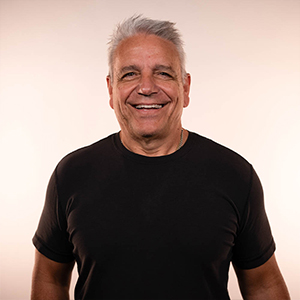Firm Foundation, Matthew 7:22-29
Discussion & Practice
- Read Matthew 7:24-29. What is this foundation? How would you describe it based on the rest of Jesus' Sermon on the Mount?
- What is the connection between Hearing and Doing in this passage? Why are they inseparable? (See also James 1:22-24)
- As you build your house (or life) upon Christ's foundation by putting his words into practice, in what ways is this different from earning your salvation through good works?
- Read Hebrews 4:1-2. Consider where you might be on the fence with Jesus right now, spending time around him in intimate settings, but never really putting your full faith in him. Where have you heard Jesus calling, but not united that hearing with faith?
Practice: Consider today where God has been calling you to follow him and you've been stubborn or unwilling. Reflect on why you haven't put what you've heard from Jesus into practice. What is stopping you? Tell someone in your Life Group where you need help being a doer of the word and not just a passive hearer and have them help hold you accountable.
Notes
We’ve come to the end of the Sermon on the Mount. It’s not just the end of the sermon, but the end of the final verses. Jesus gives us these images to distinguish a true disciple from a false disciple. It’s not always discernible who is a true disciple. Sometimes you can’t even determine it yourself, because we deceive ourselves. It will be crystal clear at the end.
Think about Judas who was with Jesus for 3 years of ministry, involved at every level, with personal experiences no one else would have. Yet, when they were sitting around the table and Jesus says one of you is going to betray me, all the disciples are looking around wondering who it is. They couldn’t make it out. That’s dangerous.
They’re all sitting around the table, the most intimate place you could be in their culture, and Jesus says it’s the one who for whom he dips the bread and gives it to him. You can be in the most intimate setting with Jesus and still betray him.
Luke talks about the narrow door rather than the narrow gate. He pictures people standing outside the door trying to get into heaven and Jesus tells the people I don’t even know where you’re from. Then they say this:

You can’t get more intimate than that in this culture.
Jesus gives these graphic images to help us. He’s said there’s a narrow way and if you’ve tried to squeeze in with all your stuff, if you want it all, God and everything else, then Jesus is saying you can’t get in.
Then he uses the illustration of the good and bad tree. The outside might look like everyone else, but the inside of your tree is rotten.
Then he talks of people who say, “Lord, Lord,” but it’s never personal.
Now we come to the rock and the foundation. Jesus says you heard, but you didn’t obey.
The question becomes at the end, what is the rock and the foundation?
If you look at the verses as a whole, here’s what you see as a summary:


This is what it looks like if you divide it up. These houses look similar, but the foundation is not easy to see. You don’t drive up every day and notice the foundation. According to this text, it takes a disaster to reveal the reality. There are rains and winds and floods.
In that day and culture, the weather was the worst possible thing that could happen. The whole ancient, agricultural civilization was dependent on the weather. Back in that day, a heavy rain could be nuclear.

Jesus’ judgment is seen as a disastrous weather system. Judgment will be like standing in the middle of a tornado or the worst kind of flood.
Ezekiel 13, Ezekiel is prophesying to the Israelites, saying you’ve built this wall and made it really nice, but it’s going to fall. There’s going to be a deluge of rain. It’s a picture of God’s wrath. When the wall falls, will it not be said to you, “Where is the coating you put on the wall?”
That’s partly what Jesus is alluding to here. God’s judgment is a disaster that the false believer cannot survive. And a real follower of Christ will survive that storm with no problem.



An indestructible life is one that is safe from the greatest possible disaster, that of God’s judgment. That’s what the good life is.
Before we look at the differences between these two houses, I want you to see something interesting about what Jesus says here:

There’s a link between the present and the future. The end of time is not arbitrary. It’s not a snotty Jesus who just won’t let you in.
What you’re doing solidifies your future. You’re building something that can survive the storm and go into eternity. It has an eternal quality to it that can’t be broken up. It doesn’t just survive this life, but the life to come as well.
You endure storms now, you’ll endure them later.
There are no new projects in heaven. You’ve already started the project here. You don’t start building in heaven. Jesus is essentially saying here, you’ve already started building on an eternal foundation that builds into the future.
Quit imagining Jesus is arbitrarily sending people to hell or heaven. There are no new projects in heaven. You’ve already started it.
This is important for any true disciple. There’s a link to a future that’s already so real. You start living it now.
The future being described here is being incorporated into your life now and your life is being incorporated into the future.
Jesus is offering this undying kind of life, the quality of eternity now. It may just feel like crappy life now, but that’s not true.
Understanding our future informs our present. If you take the future away, we’re going to be too loose here.
Sam Harris and Jordan Peterson both have inadequate pictures of eternity. Harris believes you’re too stupid if you believe the Bible. He believes you’re a coward if you look toward the future like Christians do. He believes you’re braver if you think death is the end of it all and that nothing matters in the end.
Harris believes the future is nonexistent. His belief is an inhumane kind of hopelessness.
On the other hand is Jordan Peterson. He believes the future is not relevant enough to now.
Jesus says the ultimate hope you have is now and later. That makes me hopeful. It matters what I do now.
If you believe death is the end, that would mean you can’t be disappointed. You don’t have to do anything here or come through for anyone. No pain, suffering, or regret. That’s cowardice.
I read something from Dallas Willard years ago, “The truly brave person is surely the one who can face the prospect of an unending existence.”
How brave do you have to be today if what I’m doing today matters forever? That’s brave.
The reality is that you’ll never stop existing.
Jesus is saying it takes real courage to build the life he’s telling us to build, but he’s giving us the hope that it is going to last forever.
Some are wondering if they’re a true or false follower. Not everyone in the room is a true follower.
For the fake disciple, hearing and doing are disconnected. For a true disciple, they are inseparable.

To go from hearing to doing is no small thing. How often do you hear it’s good to exercise or eat less. To go from hearing to doing is the struggle of our lives in any category of our lives.
The true and false disciples look like they live in the same neighborhood. But one of them is foolish.

Jesus is using hyperbole here. Nobody is trucking in sand. He’s trying to show just how weak it is.
To the fake followers, the structure is all that matters, because it’s seen. You like to be around it all, to be in the neighborhood, it feels good to hear about heaven and forgiveness. The part of you that wants to have integrity and character resonates with Christian teaching, but you still never get around to living that kind of life.
He’s saying, I don’t care how good it feels to hear.
If you have foundation problems, you’ll see it show up in your house. There will be cracks in the walls or a door won’t shut.
Ground is shifting. Your spiritual world is coming apart at the bottom. But you still have an overconfidence. That’s a false disciple.
During the captivity when Israel was punished by God, the Northern and Southern kingdoms both get overrun and taken away. Not everyone went into captivity. Some of the Israelites had to sit back in Jerusalem. So there was a part of them that thought they avoided judgment.
What happened was, they felt like they were still in the Promised Land. Ezekiel shows up to tell them they’re under judgment too, and they better stop doing what they’re doing. Yes, you’re in the holy city and you get to hear from a prophet.
God tells Ezekiel to speak to those people who come and sit before him like they’re God’s people. He says, they sit before you and hear, but their hearts are set on getting what they want. He said, you are like those who listen to a beautiful song. They will hear what you say, but they will not do it.
That could easily be a person in this room.
In the Divine Conspiracy, Willard says, You’ve got to understand something about us people, they believe what they don’t believe at all. In a setting where a social premium has been placed for group solidarity. We must face the fact that human beings are capable of professing what they do not believe at all. They do this for so long, they get to the point that they don’t even know they don’t believe. At some point, their actions will reveal what they really believe.
How do we connect hearing and doing?
You have this rock foundation Jesus is describing. We’re talking about a solid base.

There was nothing and then there was something. The word of God is ultimate reality. You can’t even come into existence without it. It’s an invisible force at work. When you obey God’s word, your life takes on an eternal quality. God’s actual will comes into existence when you obey him. You get to participate in what he wants to make happen.

Quantum mechanics is when physics and metaphysics come together.
What was seen was not made out of things that are visible.
Hearing and Doing have to be linked.


This is the life Jesus offers. Eternal life is a life that can stand up to anything. Not just the storms and hardships of this life.
It all starts with Jesus. Have you given him say over your life?

